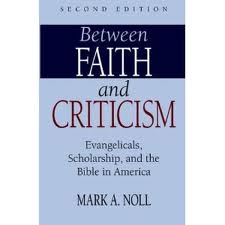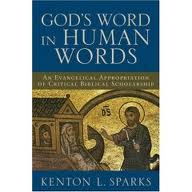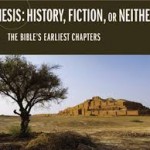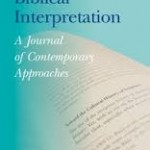One of the chief marks of conservative evangelical biblical scholarship is that it claims to accept the validity of historical criticism but limits or adapts the critical method in order to avoid or reverse the standard conclusions of modern biblical scholarship….
[C]onservative evangelicals claim to be as interested as anyone in playing the academic game with historical-critical rules. They fully believe that the historical critical method, when employed properly, will sustain the Bible’s integrity and undermine the problematic results of modern biblical criticism. This is the essence of [what Mark Noll calls] “critical anti-criticism.”
From whence comes this anti-critical perspective, and what scholarly results does it produce?
….In their efforts to confront the threat of liberal modernism in the church, academy, and society during the early twentieth century, fundamentalists sent their young men (and occasionally, women) to universities where they could be properly credentialed and suitably trained to understand and then refute the work of modern biblical critics.
In many universities, however, fundamentalist perspectives were so academically unpalatable that it was almost impossible for the theologically conservative student to study the Bible and graduate with his or her religious views intact, as was evidenced, even then, by the many conservative graduate students who surrendered their faith during their pursuit of a doctoral credential….
 [I]t was impossible for bright, young fundamentalist students to avoid noticing that the biblical and historical evidence created, or at least seemed to create, substantial difficulties for their conservative doctrine of Scripture. As a result, while their fundamentalist forefathers tended to reject biblical criticism with anti-intellectual fideistic responses, this new generation of fundamentalists from the 1950s and 1960s–now called evangelicals–intended to use their intellectual and critical skills to prove that fundamentalism’s view of the Bible was correct all along.
[I]t was impossible for bright, young fundamentalist students to avoid noticing that the biblical and historical evidence created, or at least seemed to create, substantial difficulties for their conservative doctrine of Scripture. As a result, while their fundamentalist forefathers tended to reject biblical criticism with anti-intellectual fideistic responses, this new generation of fundamentalists from the 1950s and 1960s–now called evangelicals–intended to use their intellectual and critical skills to prove that fundamentalism’s view of the Bible was correct all along.
Consequently, a common characteristic of conservative, evangelical scholarship during the 20th century, and now at the dawn of a new century, is that it attempts to use accepted critical methodologies to demonstrate that certain conservative theological positions–such as the Bible’s inerrancy and historical accuracy–fit the biblical evidence and are intellectually satisfying.
[Over the next 25 pages, Sparks argues that these attempts are unsuccessful, cataloging 8 strategies commonly used by conservative evangelical scholars to adapt or limit critical biblical scholarship.]
Kenton L. Sparks
God’s Word in Human Words: An Evangelical Appropriation of Critical Biblical Scholarship, 144-46
(additional paragraph divisions added)















